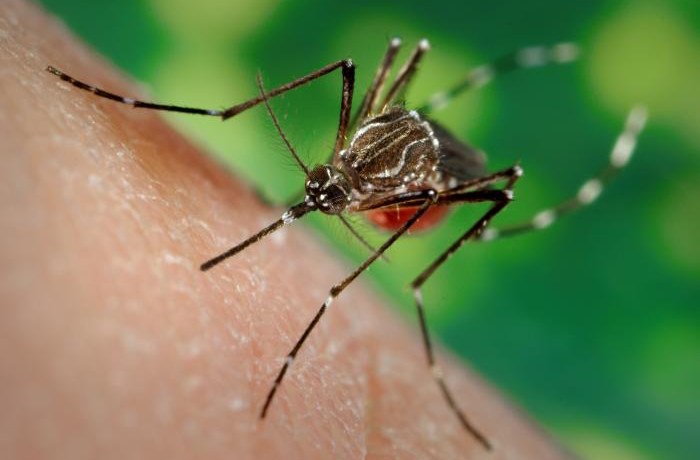
Mosquitoes' taste for blood is finally explained
The diseases spread by mosquitoes kill 500,000 people a year, such as Malaria and Zika.
Female mosquitoes don't usually suck blood—they sustain themselves on nectar, but switch to the red stuff when they need to lay eggs. They work harder to drink blood than nectar, drawing it in with much greater force.
A recent study demonstrates that mosquito brains react to the taste of human blood in strange ways.
Some neurons only activated when presented with all four flavor elements. This is thought to be a unique adaptation.
The researchers genetically modified mosquitoes so that specific neurons associated with taste lit up florescent tags when activated. They then offered these Franken-mosquitos a variety of tempting drinks to see if they would consume them and, if so, what taste neurons activated.
Sheep's blood was found to appeal to the insects, which consumed it with delight. However, attempts to get them interested in saline or sugar water mixtures that had only single components of blood didn't work, even when the signatures of animals like Carbon dioxide or heat (typically used by the parasites as guides towards sources of blood) were added.
To draw them back, the researchers whipped up a blood-like concoction of glucose (sugar), sodium bicarbonate (present in both blood and baking soda), sodium chloride (salt), and adenosine triphosphate, or ATP, a compound that provides energy to cells which is found in all known forms of life. This was a success, and the little parasites flocked to it.
Next, the scientists offered the mosquitoes small tastes of each of the flavor components in the blood mixture to see which neurons reacted. While giving them glucose did not activate any of the neurons associated with the blood-drinking system— perhaps because glucose is also found in nectar—small doses of salt, sodium bicarbonate, and ATP did. Each flavor activated its own set of neurons, similar to how our taste buds react to a specific flavor element.
The findings may lead to novel ways to prevent mosquito bites.
 English
English Arabic
Arabic


